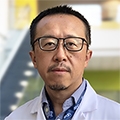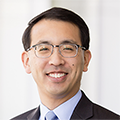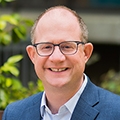HDFCCC 7th Annual Precision Imaging of Cancer & Therapy (PICT) Symposium
Date
The annual PICT symposium provides an opportunity for members of the Helen Diller Family Comprehensive Cancer Center and the Department of Radiology and Biomedical Imaging to showcase their research, exchange ideas, and identify possible collaborations. PICT's 2023 theme is Immunotherapy, Theranostics and Artificial Intelligence in Cancer Imaging.
3681 America/Los_Angeles public
Type
Time Duration
The annual PICT symposium provides an opportunity for members of the Helen Diller Family Comprehensive Cancer Center and the Department of Radiology and Biomedical Imaging to showcase their research, exchange ideas, and identify possible collaborations. PICT's 2023 theme is Immunotherapy, Theranostics and Artificial Intelligence in Cancer Imaging.
Speakers

UCSF Department of Radiation Oncology
As Vice Chair of Medical Physics and Endowed UCSF Chair of Physics and Engineering, Dr. Sheng leads the research, clinical and educational missions toward excellence. His research encompasses many aspects of medical physics, including treatment planning optimization for photons and particles, MR-guided radiotherapy, FLASH and radiobiology, computational oncology, image reconstruction and processing, and robotics. He has been consistently funded by NIH since 2008, with 16 NIH and DOE grants as the PI. Dr. Sheng is committed to a strong and innovative clinical medical physics program that supports the highest quality patient care. Dr. Sheng is an ABR board certified medical physicist. Besides research, Dr. Sheng is enthusiastic about mentoring and teaching new generations of academic medical physicists.]

Medical Oncologist, Cancer Immunology & Immunotherapy Program
UCSF Division of Hematology & Oncology
Dr. David Oh is a physician-scientist focused on developing novel immunotherapies with enhanced activity and reduced toxicity, for patients with solid cancers.
He leads numerous early phase trials, with a particular focus on adoptive cell therapies for solid tumors (CAR-T and TCR). He also leads trials of intratumoral immunotherapy and next-generation cytokine therapy.
In the laboratory, he runs an extramurally funded translational program focused on the role of cytotoxic immune effectors in anti-tumor responses as well as immune-related adverse events (IRAEs) after immunotherapy. This work spans high-resolution multiomic interrogation and functional validation using patient samples, as well as murine model systems.

Modality Director for MRI
UCSF Department of Radiology and Biomedical Imaging
Michael Ohliger, MD, PhD, is an Associate Professor and MR Modality Director at UCSF Radiology & Biomedical Imaging. Dr. Ohliger obtained his PhD in Medical Physics from the Massachusetts Institute of Technology Harvard/MIT Division of Health Sciences and Technology in 2005, and he received his MD in Medicine from Harvard Medical School in 2007. He completed his residency in Diagnostic Radiology and fellowship training in Abdominal Imaging at UCSF.
Dr. Ohliger’s main research involves the development and clinical translation of new MRI techniques for the abdomen and pelvis, with a focus on molecular imaging of liver tumors, liver metabolism and liver injury. Current research projects involve using hyperpolarized carbon-13 MRI to image liver tumors as well as fatty liver disease. Dr. Ohliger also has a major research effort (together with Dr. David Wilson and Oren Rosenberg) developing novel methods for imaging bacterial injection.
